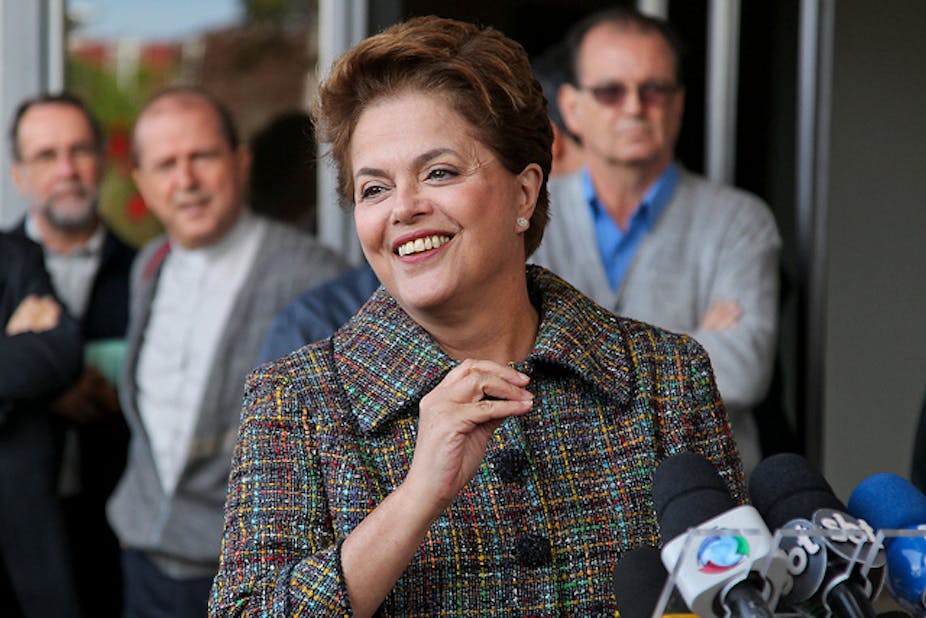The annual opening of the United Nations General Assembly always draws distinguished speakers, but their speeches rarely have much international impact. General Assembly speeches are heavy on rhetoric and image, but they tend to have little policy substance, especially for the most powerful states that work through the Security Council, if they consult the United Nations at all.
Tuesday’s opening is different. Three of the headline speakers - US president Barack Obama, Brazilian president Dilma Rousseff, and Iranian president Hassan Rouhani - will give revealing policy speeches with far-reaching international implications. The presidents will use their statements to signal to their critics, at home and abroad, that coherent and worthwhile strategies lie behind some of their surprising recent moves.
Obama will make his first authoritative statement about the US position on the Syrian civil war since the last-minute agreement on 14 September 2013 that averted an American military strike. Obama will want to show that the United States is willing to enforce “red lines” on chemical and nuclear weapons, just as it is eager to negotiate agreements for disarmament and stability in the region. American efforts to nurture democratic governments in the Middle East during the Arab Spring have failed. The president will try to set a new agenda for US efforts to foster openness, stability, and reform in Egypt, Iraq, and of course Syria.

Rousseff will address different but equally controversial issues. She will make a strong argument for giving her country more influence in the United Nations and other international bodies. It makes little sense to have France on the Security Council but not Brazil. Rousseff’s cancellation of a state dinner with President Obama and her angry condemnation of American surveillance efforts in Brazil (including Rousseff’s private conversations) reflect her aim to assert a more independent Brazilian position in the world. Her speech will announce a Brazilian alternative to US domination in Latin America.
Iranian President Hassan Rouhani will probably give the most closely watched and important speech of the group. The new leader of Iran will be introducing himself to a worldwide audience for the first time. Like Rousseff, he will assert Iranian independence, and he will claim for his nation a legitimate role as a cultural, economic, and military leader in the Middle East. Like Obama, however, Rouhani will emphasise the importance of negotiated agreements to ensure openness, peace, and stability in the region.
Rouhani might even indicate a willingness to negotiate with Israel. His primary goal will be to lift international sanctions that are crippling the Iranian economy, and reduce sources of conflict that ultimately limit Tehran’s regional influence. Rouhani will pursue routes to stability in the Middle East that increase Iranian influence, often at the cost of the United States.
These three speeches and the many other statements at the opening of General Assembly reflect an international system in transition. Since the end of the Cold War attention to human rights, ethnic conflict, terrorism, and counter-insurgency has increased across the globe. Each of these phenomena has brought new state actors to centre stage. Each of these phenomena has also challenged American international dominance, while reinforcing the need for continued American leadership, especially during moments of conflict in the former Yugoslavia, Afghanistan, Libya, and now Syria. The post-Cold War world has shown the limits of American power, but also the fundamental role the United States still plays in so many regions.
Serious grappling
The opening of the General Assembly will neither diminish nor increase the power of the United States. The speeches will represent a serious grappling, by major figures, with our messy multipolar moment. The United States, Brazil, and Iran are highly independent, yet deeply dependent on one another. Their futures will be determined by their respective actions, as is also true for China, Russia, Germany, Japan, Israel, and South Africa. These heavyweights are struggling to shape the actions of each other that avoid war, increase wealth, and create strategic advantages.
East-West and North-South polarities are less important than anytime in recent decades. A global great game is our present condition. That makes diplomacy and posturing at the United Nations more revealing than ever before. Perhaps this much-maligned international body is entering its golden age of maximum influence.

